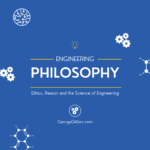Applicability of Lessons Learned in New Product Development

Applicability of Lessons Learned
Introduction - Applicable Documentation
Generally, In the dynamic world of vehicle product development, the ability to comprehend and apply Lessons Learned is a critical factor in driving innovation and ensuring product reliability. Fundamentally, Lessons Learned encompass the valuable insights gained from previous projects, whether they relate to design challenges, manufacturing processes, or field performance. Therefore, by systematically documenting and analyzing these experiences, engineering teams can identify patterns, root causes, and potential risks that might otherwise go unnoticed. Consequently, this knowledge serves as a foundation for making informed decisions in future projects. Sequentially, this allows for the refinement of technical specifications, optimization of processes, and enhancement of overall product quality.
Moreover, the applicability of Lessons Learned extends across the entire product lifecycle, from initial concept development to post-launch support. For example, feedback from manufacturing can highlight inefficiencies or material issues that, if addressed, can lead to cost savings and improved production timelines. Similarly, warranty data and service reports provide real-world performance insights that are invaluable for refining designs and preventing recurring issues in new models. Utilizing Lessons Learned, companies can foster a culture of continuous improvement, where every challenge encountered becomes an opportunity for growth. Ultimately, the effective application of Lessons Learned not only mitigates risks but also strengthens the competitive edge, leading to more durable, reliable, and customer-focused vehicles.
Typical Documentation Applicable to Lessons Learned
Documenting Lessons Learned is essential for ensuring that the knowledge gained from past experiences is accessible and useful for future projects. Therefore, the following are typical documentation methods used in vehicle product development to capture and apply Lessons Learned:
Design Failure Modes & Effects Analysis (DFMEA)
DFMEA is a systematic approach necessary to identify potential design failures, assess their impact, and prioritize corrective actions. Consequently, by incorporating Lessons Learned from past projects into the DFMEA process, engineers can proactively address potential design weaknesses and improve product reliability. For example, if a specific component consistently fails under certain conditions, this information can be used to modify the design to prevent future occurrences. DFMEA serves as a living document that evolves as new lessons are learned and integrated into the design process.
Process Failure Modes & Effects Analysis (PFMEA)
Similar to DFMEA, PFMEA focuses on identifying potential failures in manufacturing processes. Therefore, by documenting Lessons Learned from previous production issues, manufacturers can implement process improvements that reduce the likelihood of defects and enhance overall product quality. For instance, if a particular assembly process has been prone to errors, this information can be used to refine the process, improve operator training, or develop better tooling. Therefore, PFMEA helps ensure that manufacturing processes are robust and capable of producing high-quality products consistently.
Technical Specifications
Technical specifications define the requirements that a product must meet to satisfy customer needs and regulatory standards. Moreover, Lessons Learned from previous projects can be used to refine these specifications, ensuring that they are both realistic and achievable. For example, if a particular material proved unsuitable for a specific application, this information can be used to update the material specifications for future projects. Consequently, by continuously improving technical specifications based on Lessons Learned, manufacturers can ensure that their products meet the highest standards of quality and performance.
Engineering Best Practices and Templates
Engineering best practices and templates are valuable tools for capturing and standardizing Lessons Learned. Furthermore, by developing and maintaining a library of best practices and templates, manufacturers can ensure that the knowledge gained from past projects is readily accessible to engineers working on new projects. For example, a best practice guide for designing electrical systems could include Lessons Learned from previous projects, such as optimal wiring configurations or common failure modes. Moreover, by following these best practices, engineers can reduce the likelihood of design errors and improve overall product quality.
Design Best Practices and Templates
Similar to engineering best practices, design best practices and templates help standardize the application of lessons learned in the design process. In addition, these resources can include guidelines for component selection, material use, and design for manufacturability. Hence, by incorporating lessons learned into design best practices, manufacturers can ensure that new products are designed with reliability, performance, and ease of production in mind. For instance, a template for designing structural components could include guidelines for avoiding common failure modes, such as fatigue or corrosion. In addition, by adhering to these best practices, designers can create more robust and reliable products.
Product Evaluation and Validation Processes and Documentation
Product evaluation and validation processes are critical for ensuring that a product meets all design and performance requirements. Consequently, Lessons Learned from previous validation efforts can be used to refine testing protocols, improve test coverage, and ensure that potential issues are identified and addressed early in the development process. For example, if a particular validation test consistently reveals weaknesses in a specific subsystem, this information can be used to enhance the testing process and prevent similar issues in future projects. Therefore, by continuously improving evaluation and validation processes based on lessons learned, manufacturers can reduce the risk of costly recalls and improve overall product quality.
Engineering Peer Review Process
The Engineering Peer Review process is a culmination of a certain development or a proposed change. Generally, the formal process is a set of activities and meetings where design concepts, technical specifications, and potential risks are critically evaluated by experienced engineers. Therefore, the applicability of Lessons Learned to this process is invaluable, as it allows teams to leverage insights from previous projects to identify potential issues early in the development cycle.
Moreover, by incorporating documented Lessons Learned into peer reviews, engineers can spot design flaws, material incompatibilities, or process inefficiencies that have led to past failures. In addition, this systemic proactive approach enhances the thoroughness of reviews, ensuring that potential risks are addressed before they escalate into costly problems. Furthermore, Lessons Learned provide a benchmark for evaluating new designs against established best practices, fostering a culture of continuous improvement. Ultimately, applying these insights during peer reviews leads to more robust designs, reduced rework, and a higher likelihood of successful product launches.
Conclusion: System and Subsystem Technical Specifications
In conclusion, the applicability of Lessons Learned in vehicle product development is a cornerstone for driving continuous improvement and ensuring product excellence. Therefore, by systematically capturing and applying insights from past projects—whether from design reviews, manufacturing processes, field performance, or warranty data—engineering teams can proactively address potential risks and refine their approaches.
Fundamentally, this integration of past experiences into current projects not only enhances the quality and reliability of new products but also reduces development time and costs by avoiding recurring issues. Moreover, fostering a culture that values lessons learned encourages innovation and collaboration, as teams build on a foundation of shared knowledge. In an industry as complex and competitive as automotive manufacturing, the strategic application of lessons learned is essential for delivering superior products that meet customer expectations and maintain a company’s competitive edge.
References:
- Engineering Change Request – https://en.wikipedia.org/wiki/Change_management_(engineering)
- Engineering Change Request – https://georgedallen.com/engineering-change-requests-ecr-new-best-practices/
- Theory of Change – https://georgedallen.com/theory-of-engineering-change-in-new-product-development/
- Theory of Chaos – https://georgedallen.com/navigating-chaos-systems-engineering-in-vehicle-occupant-sensing/
- Impact Analysis – https://georgedallen.com/impact-analysis-of-the-new-engineering-change/
- Peer Review – https://georgedallen.com/new-peer-review-process-craft-advanced-tech/
About George D. Allen Consulting:
George D. Allen Consulting is a pioneering force in driving engineering excellence and innovation within the automotive industry. Led by George D. Allen, a seasoned engineering specialist with an illustrious background in occupant safety and systems development, the company is committed to revolutionizing engineering practices for businesses on the cusp of automotive technology. With a proven track record, tailored solutions, and an unwavering commitment to staying ahead of industry trends, George D. Allen Consulting partners with organizations to create a safer, smarter, and more innovative future. For more information, visit www.GeorgeDAllen.com.
Contact:
Website: www.GeorgeDAllen.com
Email: inquiry@GeorgeDAllen.com
Phone: 248-509-4188
Unlock your engineering potential today. Connect with us for a consultation.

